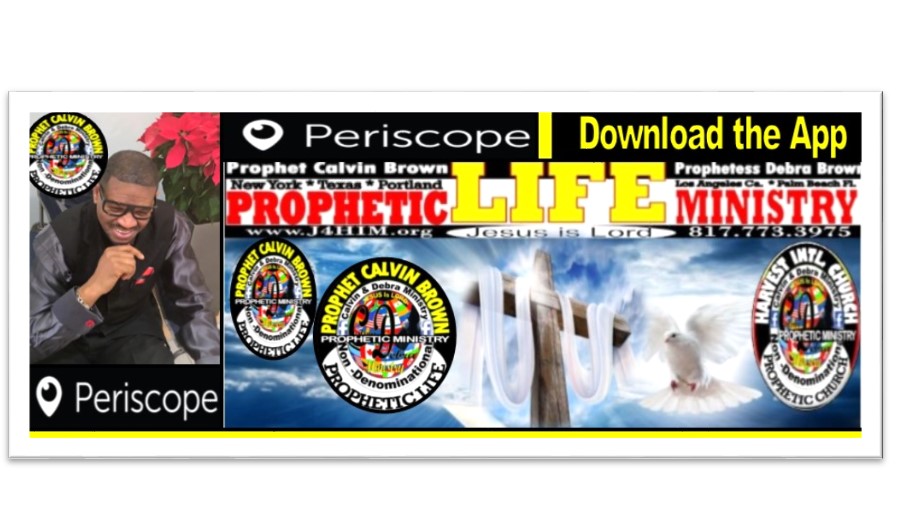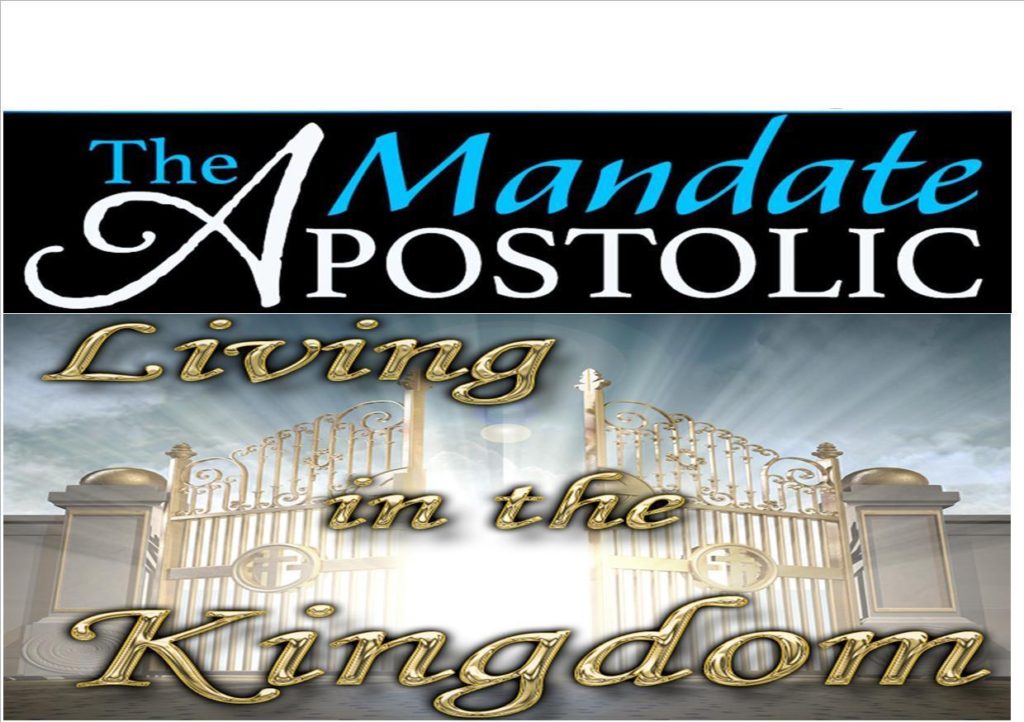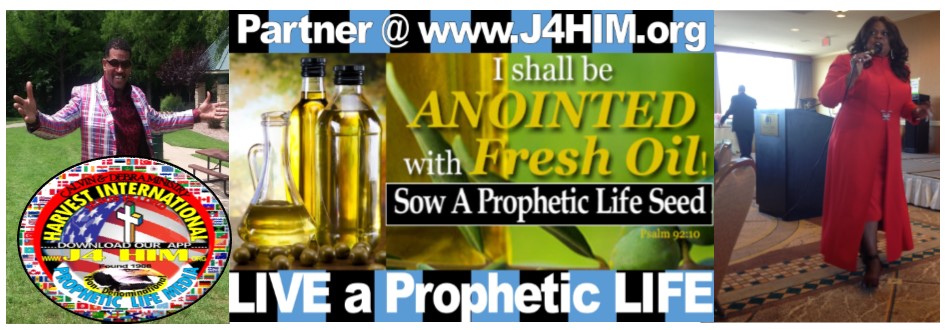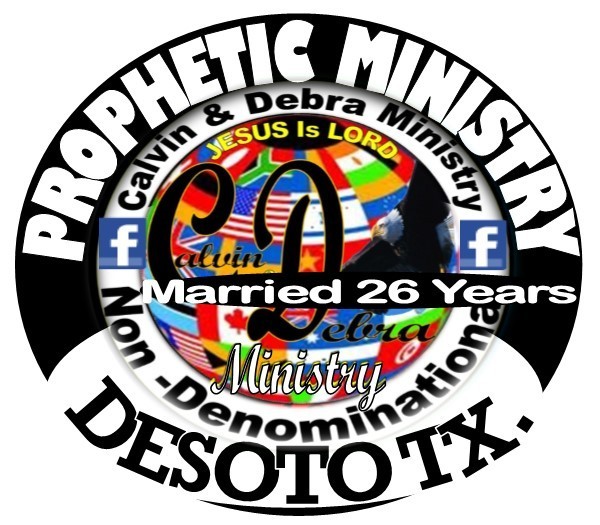
Apostolic Oil 10 Points

Ten dynamics of Antioch churches
- Led by Holy Spirit Apostolic Oil visionary leader
- Motivated by Holy Spirit Apostolic Oil Biblical understanding of kingdom and the great commission
- Equipping the saints to transform society by Holy Spirit Apostolic Oil bringing cultural change (revolution)
- Holy Spirit Apostolic Oil is Committed to a future generation by mentoring and Spiritual Fathering
- Holy Spirit Apostolic Oil Anointed creates signs and wonders confronting every demonic force head on
- Holy Spirit Apostolic Oil Passes the baton of leadership is only to those already running hard
- Holy Spirit Apostolic Oil Impacting entire regions with Apostolic order and anointing
- Holy Spirit Apostolic Oil Make room for Saul’s of today to become Paul’s of tomorrow
- Ministry is defined not from the past, but the NOW working of the Holy Spirit Apostolic Oil
- Life of the church revolves around ministry to the Lord

Barnabas – ex Levitical priest
Saul – educated in Judaism
Lucius – from Cyrene north of Libya and hostile to Israel
Manaen – from Herod’s personal court
The prophetic influence had grown in Antioch causing reproduction of ministry gifts.
Acts 13:2-3
2 As they ministered to the Lord, and fasted, the Holy Ghost said, Separate me Barnabas and Saul for the work whereunto I have called them. And when they had fasted and prayed, and laid their hands on them, they sent them away.
Each ministry gift functioned without fear or intimidation of the other gifts.
- They ministered jointly.
- They were focused prior to this visitation for common purpose.
- They realized the work of the kingdom was bigger than themselves.
- They were willing to release their key leaders for greater kingdom work.
The Antioch church became the base to work and established other churches within a region
The churches established were looked upon as building the overall base and they were connected by mutual covenant relationship.

- Each church became its own self-supported self-governed church.
- Each church took on its own distinction and dimensions.
- Each church related to Antioch through Paul’s apostolic relationship.
- Apostolic leadership only developed leaders and appointed elders.
- Apostolic leadership helped resolve doctrinal conflicts.
- Apostolic leadership only helped with future church planting by new churches.
- Antioch developed other ministry gifts, leaders and ministers to be of help to those churches seeking care under them.
- Antioch developed apostolic teams to help churches to grow and expand.
Galatians 2:11
11 But when Peter was come to Antioch, I withstood him to the face, because he was to be blamed.
Antioch Leadership Principles
Antioch became Paul’s home base to operate out of.

Romans 16:1
I commend unto you Phoebe our sister, which is a servant of the church, which is at Cenchrea:
Cenchrea — – out of an Antioch church plant of Corinth
Acts 16:11-40 Paul leaves Luke at Philippi
Acts 17:1-10 Paul leaves Timothy at Thessalonica
Acts 17:10-15 Paul leaves Silas at Berea
Acts 18:19-21 Paul leaves Aquila and Priscilla at Ephesus
All of these were church plants from the main Antioch church.
All of these had problems to resolve.
The only church without any problem listed is Ephesus.
Ephesus was pastored by Timothy, Paul’s own son in the Lord
This produced cross-pollination of the different ministries and strengthened an already going relationship.
This enabled the right ministry for breakthrough to be in a an area when needed!!
This is Apostolic Strategy of strategic placement!!
Correct Leadership Brought Growth
Antioch did not grow as large as the church in Jerusalem but the impact was further reaching and covered more of the region by far over Jerusalem.
Antioch grew in the following ways, Acts 11-13
- When Barnabas became the resident Pastor
- When Saul and leadership team was formed
- When Paul and Barnabas allowed fresh prophetic impartation
- When gifts began to mature and take their place
Antioch became focused on the region with specific missions
Acts 14:26-28 And thence sailed to Antioch, from whence they had been recommended to the grace of God for the work which they fulfilled. 27 And when they were come, and had gathered the church together, they rehearsed all that God had done with them, and how he had opened the door of faith unto the Gentiles. 28 And there they abode long time with the disciples.

36 And some days after Paul said unto Barnabas, Let us go again and visit our brethren in every city where we have preached the word of the Lord, and see how they do.
Destinies of ministries are inter-linked with each other in Antioch style churches
Acts 13:1 Barnabas and Saul Prophet / Apostle
Acts 13:13 Paul, Barnabas and John Mark Apostle / Prophet / Young Apostle
Acts 15:39 Barnabas and John Mark Prophet / Young Apostle
Acts 15:40 Paul and Silas Apostle / Prophet
Acts 16:1 Paul and Timothy Apostle / Young Apostle
Acts 17:41 Timothy and Silas Apostle / Prophet
Acts 19:22 Timothy and Eratus Apostle / ?
Acts 20:15,17,18-38 Timothy, Apostle
Sopater, Paul’s companion on many journeys
Aristarchus, Paul’s companion 3rd journey / From Thessalonica
Secundus, Paul’s companion 3rd journey / From Thessalonica
Gaius, Paul’s companion on almost all journeys / Macedonia
Tychicus, Friend of Paul’s / Asian
Trophimus Friend of Paul’s / Ephesus
1 Cor. 4: Timothy was sent to the Corinthian church and finally settled in Ephesus as the Pastor. Both churches Paul had started!
Ten dynamics of Antioch churches
- Led by Apostolic visionary leader
- Motivated by Biblical understanding of kingdom and the great commission
- Equipping the saints to transform society by bringing cultural change (revolution)
- Committed to a future generation by mentoring and Spiritual Fathering
- Anointed to do signs and wonders confronting every demonic force head on
- Passing of the baton of leadership is only to those already running hard
- Impacting entire regions with Apostolic order and anointing
- Make room for Saul’s of today to become Paul’s of tomorrow
- Ministry is defined not from the past, but the NOW working of the Holy Spirit
- Life of the church revolves around ministry to the Lord

Build A Apostolic Church

1st Let’s look at scriptural in Building a Healthy Apostolic Church – Antioch Model
Part 1. Is 45:1 Cyrus was prophesied 150 years before Israel needed deliverance.
Israel was not even in bondage yet and God had a deliverer already planned
Dan. 5 Daniel realized the prophecy of 70 years was fulfilled and he had a legal right to pray and intercede to see deliverance accomplished.
Darius and Cyrus partnered together to defeat Babylon.
Ezra 1 Cyrus was king of Persia.
Ezra 1:2 Cyrus was to build a house for the Lord
Jesus is building a church for the Father.
Matthew 16:18
18 And I say also unto thee, That thou art Peter, and upon this rock I will build my church; and the gates of hell shall not prevail against it.
Church = ekklesia { ek-klay-see’-ah}
a gathering of citizens called out from their homes into some public place, an assembly
an assembly of Christians gathered for worship in a religious meeting
Root word to
command or order
To the Greeks, it meant – – called to form a legislative body from the general population to govern the land
To the Romans, the word meant – – Military term meaning a military task force to make newly conquered territory look like the empire of Rome.
The Greek and Roman descriptions and actions with the word “ekklesia” is Apostolic language. It is what Jesus truly desired to see fulfilled and is what He is going to build.

Part 2. Antioch concept of Church Building
Antioch Background
It ranked third, after Rome and Alexandria, in point of importance, of the cities of the Roman Empire.
- Population of 3-500,000
- It was the great central point where missionaries to the Gentiles were sent forth.
- Nicolas, one of the seven ‘deacons’ of Acts 6:5, was of Antioch, and had been a Gentile convert to Judaism. During the persecution which followed the death of Stephen, some of the disciples went as far north as Antioch (Acts 11:19)
- The disciples were first called ‘Christians’ there. (Acts 11:26)
- Paul began and ended his second missionary journey at Antioch. This notable city also saw the start of his third missionary visitation.
Battling Anointing is always to release a Building anointing!
2 Timothy 3:11
11 Persecutions, afflictions, which came unto me at Antioch, at Iconium, at Lystra; what persecutions I endured: but out of them all the Lord delivered me.
Acts 11:19
19 Now they which were scattered abroad upon the persecution that arose about Stephen traveled as far as Phoenicia, and Cyprus, and Antioch, preaching the word to none but unto the Jews only.
Antioch was formed from persecution to reach Gentile believers.
Antioch churches have breakthrough believers.
Break through: Culture
Limitations
Fear of men
Human limitations

Antioch had cross-cultural leaders with multiplicity of leadership as a team.
Acts 11:25-26
25 Then departed Barnabas to Tarsus, for to seek Saul: 26 And when he had found him, he brought him unto Antioch. And it came to pass, that a whole year they assembled themselves with the church, and taught much people. And the disciples were called Christians first in Antioch.
Teaching was by systematic truth
- Impartation into the lives of the people
- Embraced outside instruction
- Radical lifestyle reflected by the calling of the name “Christian”
Acts 11:27-30
27 And in these days came prophets from Jerusalem unto Antioch. 28 And there stood up one of them named Agabus, and signified by the Spirit that there should be great dearth throughout all the world: which came to pass in the days of Claudius Caesar. 29 Then the disciples, every man according to his ability, determined to send relief unto the brethren which dwelt in Judaea: 30 Which also they did, and sent it to the elders by the hands of Barnabas and Saul.
Antioch allowed the Spirit of God to have first place.
- The gifts of the Spirit flowed and brought direction and set values.
- Antioch became a center for resource because the Spirit of God directed their actions.
- Antioch was a forerunner sending relief a year in advance.
Antioch was made up of a cross section of society. Even in Acts 6:5 someone from Antioch was in Jerusalem as one of the seven faithful to wait tables. Acts 13:1

Apostolic Anointing

 .
.-
smear or rub with oil, typically as part of a religious ceremony.“high priests were anointed with oil”
synonyms: formalhallow“he was anointed and crowned”-
smear or rub something with (any other substance).“Cuna Indians anoint the tips of their arrows with poison”
-
ceremonially confer divine or holy office upon (a priest or monarch) by smearing or rubbing with oil.“the Lord has anointed me to preach to the poor”
synonyms: formalhallow“he was anointed and crowned”
-
Question: “What is the anointing? What does it mean to be anointed?”
Answer: The origin of anointing was from a practice of shepherds. Lice and other insects would often get into the wool of sheep, and when they got near the sheep’s head, they could burrow into the sheep’s ears and kill the sheep. So, ancient shepherds poured oil on the sheep’s head. This made the wool slippery, making it impossible for insects to get near the sheep’s ears because the insects would slide off. From this, anointing became symbolic of blessing, protection, and empowerment.
The New Testament Greek words for “anoint” are chrio, which means “to smear or rub with oil” and, by implication, “to consecrate for office or religious service”; and aleipho, which means “to anoint.” In Bible times, people were anointed with oil to signify God’s blessing or call on that person’s life (Exodus 29:7; Exodus 40:9;2 Kings 9:6; Ecclesiastes 9:8; James 5:14). A person was anointed for a special purpose—to be a king, to be a prophet, to be a builder, etc. There is nothing wrong with anointing a person with oil today. We just have to make sure that the purpose of anointing is in agreement with Scripture. Anointing should not be viewed as a “magic potion.” The oil itself does not have any power. It is only God who can anoint a person for a specific purpose. If we use oil, it is only a symbol of what God is doing.
Another meaning for the word anointed is “chosen one.” The Bible says that Jesus Christ was anointed by God with the Holy Spirit to spread the Good News and free those who have been held captive by sin (Luke 4:18-19;Acts 10:38). After Christ left the earth, He gave us the gift of the Holy Spirit (John 14:16). Now all Christians are anointed, chosen for a specific purpose in furthering God’s Kingdom (1 John 2:20). “Now He who establishes us with you in Christ and has anointed us is God, who also has sealed us and given us the Spirit in our hearts as a guarantee” (2 Corinthians 1:21-22).

What does it mean to have an Apostolic Anointing Upon your Life?
It simply means that you have been called, chosen and appointed with one of the five –fold calling, given to the church for the perfecting of the Saints. Ephesians 4:11-12
HUMILITY
 of the Aposle
of the Aposle
The Apostolic is a very stern, teaching, correcting, rebuking and disciplining, type of anointing, but it’s all done in Love. Their main purpose is to bring back spiritual Order and Structure to the Body of Christ, to such a measure, as to cause the Body to Become beautiful, that when the world looks at the Church, they see an institution that is Disciplined, Ordered, Beautiful and Perfect, i.e. The Bride of Christ. This does not mean that the Apostle does not have the Love of God, but rather, because He or She is so passionate about the things of God, and so loves the Lord, and God’s People, that’s the reason they flow and operate the way they have been gifted to. Many misinterpret the anointing and gifting.
I want to thank God for present day apostles, and I thank God for calling me with that anointing upon my life, I glory not in the Title, but rather in the God that called me, that is my Lord and Savior Jesus Christ. I see myself as a Humble servant of the Lord Jesus.
I pray that the Body of Christ will one day be that Perfect Bride, without spot and wrinkle, so that when the Bridegroom (Jesus Christ) comes, He will accept his bride the Church.
Question: “What was olive oil a symbol of in the Bible?”
Answer: In the Bible olive oil is mentioned several times as the oil used for lighting lamps (Leviticus 24:2;Exodus 27:20). Olive oil was also used for anointing oil (Exodus 30:23–25) and as part of the grain offerings (Leviticus 2:1–10). Kings were anointed with olive oil as a sign that they were chosen by God to rule (1 Samuel 16:1). As an important ingredient in the recipe for anointing oil, olive oil was used to sanctify priests (Exodus 29:7) and the tabernacle and all its furnishings (Exodus 40:9). Olive oil was also used in cooking. Olive trees grew in Israel (Deuteronomy 8:7–8), and the people in that region used the oil from pressed olives as people in other cultures might have used butter or animal fats.
Olive oil was an important part of Jewish culture because of its many uses. Because of its centrality to much of Jewish life, olive oil was sometimes used as a symbol of richness, joy, and health (Jeremiah 31:12; Hebrews 1:9). Times of judgment were described as a season when “the olive oil fails” (Joel 1:10).
Olive oil can also be seen as a symbol of the Holy Spirit (or possibly of faith) in Jesus’ parable of the ten virgins(Matthew 25:1–13). The five wise virgins in the wedding party had made sure they had olive oil for their lamps as they waited for the bridegroom to come. The five foolish virgins did not think ahead and had brought no oil. As the bridegroom drew near, the five foolish virgins begged the wise ones for some of their oil. But the wise virgins could not spare any. While the foolish virgins were out buying more oil, the bridegroom came, and their chance to join the wedding celebration was gone forever.
Jesus gave the point of the parable: “Therefore keep watch, because you do not know the day or the hour” (Matthew 25:13). At the end of the age, when Jesus comes back, some will be ready for His arrival (illustrated by the wise virgins who had olive oil); others will not be ready (symbolized by the foolish virgins who had no oil). Considering the olive oil as a symbol of the Holy Spirit (or of faith), we could say that only those who have the Spirit (or faith in Christ) are truly ready for Jesus’ second coming.
Not every reference to olive oil in the Bible is symbolic, of course. But there are passages in which olive oil can be a picture of the Holy Spirit

in Holy Scripture, is either, I. Material–with oil–or II. Spiritual–with the Holy Ghost. I. MATERIAL.–
- Ordinary . Anointing the body or head with oil was a common practice with the Jews, as with other Oriental nations. ( 28:40 ; Ruth 3:3 ; Micah 6:15 ) Anointing the head with oil or ointment seems also to have been a mark of respect sometimes paid by a host to his guests. ( Luke 7:46 ) and Psal 23:5
- Official . It was a rite of inauguration into each of the three typical offices of the Jewish commonwealth. a. Prophets were occasionally anointed to their office, ( 1 Kings 19:16 ) and were called messiahs, or anointed. ( 1 Chronicles 16:22 ; Psalms 105:15 ) b. Priests, at the first institution of the Levitical priesthood, were all anointed to their offices, ( Exodus 40:15 ; Numbers 3:3 ) but afterwards anointing seems to have been specially reserved for the high priest, ( Exodus 29:29 ; Leviticus 16:32 ) so that “the priest that is anointed,” ( Leviticus 4:3 ) is generally thought to mean the high priest. c. Kings. Anointing was the principal and divinely-appointed ceremony in the inauguration of the Jewish Kings. ( 1 Samuel 9:16 ; 10:1 ; 1 Kings 1:34 1 Kings 1:39 ) The rite was sometimes performed more than once. David was thrice anointed. d. Inanimate objects also were anointed with oil, in token of their being set apart for religious service. Thus Jacob anointed a pillar at Bethel. ( ( Genesis 31:13 ; Exodus 30:26-28 )
- Ecclesiastical . Anointing with oil is prescribed by St. James to be used for the recovery of the sick. ( James 5:14 ) Analogous to this is the anointing with oil practiced by the twelve. ( Mark 6:13 ) II. SPIRITUAL.–
- In the Old Testament a Deliverer is promised under the title of Messiah, or Anointed, ( Psalms 2:2 ; Daniel 9:25Daniel 9:26 ) and the nature of his anointing is described to be spiritual, with the Holy Ghost. ( Isaiah 61:1 ) see Luke 4:18 In the New Testament Jesus of Nazareth is shown to be the Messiah, or Christ or Anointed, of the Old Testament, ( John 1:41 ; Acts 9:22 ; Acts 17:2 Acts 17:3 ; Acts 18:4 Acts 18:28 ) and the historical fact of his being anointed with the Holy Ghost is asserted and recorded. ( John 1:32 John 1:33 ; Acts 4:27 ; 10:38 ) Christ was anointed as prophet priest and king.
- Spiritual anointing with the Holy Ghost is conferred also upon Christians by God. ( 2 Corinthians 1:21 ) ” Anointing “expresses the sanctifying influences of the Holy Spirit upon Christians who are priests and kings unto God.

[N] indicates this entry was also found in Nave’s Topical Bible
[T] indicates this entry was also found in Torrey’s Topical Textbook
Bibliography Information
Smith, William, Dr. “Entry for ‘Anointing,'”. “Smith’s Bible Dictionary”. . 1901.
ANOINTING
a-noint’-ing:
A distinction was made by the ancient Hebrews between anointing with oil in private use, as in making one’s toilet (cukh), and anointing as a religious rite (mashach).
1. Ordinary Use:
(1) As regards its secular or ordinary use, the native olive oil, alone or mixed with perfumes, was commonly used for toilet purposes, the very poor naturally reserving it for special occasions only (Ruth 3:3). The fierce protracted heat and biting lime dust of Palestine made the oil very soothing to the skin, and it was applied freely to exposed parts of the body, especially to the face (Psalms 104:15).
(2) The practice was in vogue before David’s time, and traces of it may be found throughout the Old Testament (see Deuteronomy 28:40; Ruth 3:3; 2 Samuel 12:20; 14:2; 2 Chron 28:15; Ezekiel 16:9; Micah 6:15; Daniel 10:3) and in the New Testament (Matthew 6:17, etc.). Indeed it seems to have been a part of the daily toilet throughout the East.
(3) To abstain from it was one token of mourning (2 Samuel 14:2; compare Matthew 6:17), and to resume it a sign that the mourning was ended (2 Samuel 12:20; 14:2; Daniel 10:3; Judith 10:3). It often accompanied the bath (Ruth 3:3; 2 Samuel 12:20; Ezekiel 16:9; Susanna 17), and was a customary part of the preparation for a feast (Ecclesiastes 9:8; Psalms 23:5). One way of showing honor to a guest was to anoint his head with oil (Psalms 23:5; Luke 7:46); a rarer and more striking way was to anoint his feet (Luke 7:38). In James 5:14, we have an instance of anointing with oil for medicinal purposes, for which see OIL.
2. Religious Use:
Anointing as a religious rite was practiced throughout the ancient East in application both to persons and to things.
(1) It was observed in Canaan long before the Hebrew conquest, and, accordingly, Weinel (Stade’s Zeutschrift, XVIII, 50) holds that, as the use of oil for general purposes in Israel was an agricultural custom borrowed from the Canaanites, so the anointing with sacred oil was an outgrowth from its regular use for toilet purposes. It seems more in accordance with the known facts of the case and the terms used in description to accept the view set forth by Robertson Smith (Religion of the Semites, 2nd ed., 233, 383; compare Wellhausen, Reste des arabischen Heidenthums, 2nd ed., 125) and to believe that the cukh or use of oil for toilet purposes, was of agricultural and secular origin, and that the use of oil for sacred purposes, mashach, was in origin nomadic and sacrificial. Robertson Smith finds the origin of the sacred anointing in the very ancient custom of smearing the sacred fat on the altar (matstsebhah), and claims, rightly it would seem, that from the first there was a distinct and consistent usage, distinguishing the two terms as above.

(3) The most significant uses of mashach, however, are found in its application, not to sacred things, but to certain sacred persons. The oldest and most sacred of these, it would seem, was the anointing of the king, by pouring oil upon his head at his coronation, a ceremony regarded as sacred from the earliest times, and observed religiously not in Israel only, but in Egypt and elsewhere (see Judges 9:8,15; 1 Samuel 9:16; 10:1;2 Samuel 19:10; 1 Kings 1:39,45; 2 Kings 9:3,6; 11:12). Indeed such anointing appears to have been reserved exclusively for the king in the earliest times, which accounts for the fact that “the Lord’s anointed” became a synonym for “king” (see 1 Samuel 12:3,5; 26:11; 2 Samuel 1:14; Psalms 20:6). It is thought by some that the practice originated in Egypt, and it is known to have been observed as a rite in Canaan at a very early day. Tell el-Amarna Letters 37 records the anointing of a king.
(4) Among the Hebrews it was believed not only that it effected a transference to the anointed one of something of the holiness and virtue of the deity in whose name and by whose representative the rite was performed, but also that it imparted a special endowment of the spirit of Yahweh (compare 1 Samuel 16:13; Isaiah 61:1). Hence the profound reverence for the king as a sacred personage, “the anointed” (Hebrew, meshiach YHWH), which passed over into our language through the Greek Christos, and appears as “Christ”.
(5) In what is known today as the Priestly Code, the high priest is spoken of as “anointed” (Exodus 29:7;Leviticus 4:3; 8:12), and, in passages regarded by some as later additions to the Priestly Code, other priests also are thus spoken of (Exodus 30:30; 40:13-15). Elijah was told to anoint Elisha as a prophet (1 Kings 19:16), but seems never to have done so. 1 Kings 19:16 gives us the only recorded instance of such a thing as the anointing of a prophet. Isaiah 61:1 is purely metaphorical (compare Dillmann on Leviticus 8:12-14with ICC on Numbers 3:3; see also Nowack, Lehrbuch der hebraischen Archaologie, II, 124).
_LITERATURE._
Jewish Encyclopedia, article “Anointing”; BJ, IV, ix, 10, DB, article “Anointing,” etc.
George B. Eager

Apostolic Teams

 Transform Regions
Transform RegionsEphesians 2:20 And are built upon the foundation of the apostles and prophets, Jesus Christ himself being the chief corner stone ;
Ephesians 4:11-13 And he gave some, apostles; and some, prophets; and some, evangelists; and some, pastors and teachers ; 12 For the perfecting of the saints, for the work of the ministry, for the edifying of the body of Christ : 13 Till we all come in the unity of the faith, and of the knowledge of the Son of God, unto a perfect man, unto the measure of the stature of the fulness of Christ :

1 Corinthians 3:5-10 Who then is Paul, and who is Apollos, but ministers by whom ye believed, even as the Lord gave to every man ? 6 I have planted, Apollos watered; but God gave the increase . 7 So then neither is he that planteth any thing, neither he that watereth; but God that giveth the increase . 8 Now he that planteth and he that watereth are one: and every man shall receive his own reward according to his own labour . 9 For we are labourers together with God: ye are God’s husbandry , ye are God’s building . 10 According to the grace of God which is given unto me, as a wise masterbuilder, I have laid the foundation, and another buildeth thereon. But let every man take heed how he buildeth thereupon .
The Holy Spirit tells us to be careful about how we build upon what others have built. God is not violating His word but is also building. He is building people who have no agendas of their own and whose motive is His will. They are the next generation of laborers. They are the reformers. They are apostolic people, Apostolic Teams and Apostolic Companies that are formed or emerging.
God is dealing in this hour with the identity of The Church (His people) and how they are to truly function. Without a solid awareness inside of us, we will struggle finding our placement in the plan and Body of Christ. Without identity, resolved function is unclear and boldness and confidence in assignments are lacking. Apostolic Teams bring this greater identity to the Body of Christ. After all, they are to equip the saints for the work of the ministry. Part of that equipping is to bring identity. For the most part, The Church has taken on a pastoral identity or mindset with a focus upon us. Missing is an Apostolic and Prophetic identity concerning how our lives fit into the Kingdom of God. Without that perspective, we will remain introverted and self seeking instead of harvest focused and willing to sacrifice to see “His Kingdom come, His will be done”. We will assume for that most people reading this are familiar with apostles and prophets so we will look at two dynamics unfolding- Apostolic teams and Apostolic Companies.
 Acts 13:1-3 Now there were in the church that was at Antioch certain prophets and teachers; as Barnabas, and Simeon that was called Niger, and Lucius of Cyrene, and Manaen, which had been brought up with Herod the tetrarch, and Saul . 2 As they ministered to the Lord, and fasted, the Holy Ghost said, Separate me Barnabas and Saul for the work whereunto I have called them . 3 And when they had fasted and prayed, and laid their hands on them, they sent them away .
Acts 13:1-3 Now there were in the church that was at Antioch certain prophets and teachers; as Barnabas, and Simeon that was called Niger, and Lucius of Cyrene, and Manaen, which had been brought up with Herod the tetrarch, and Saul . 2 As they ministered to the Lord, and fasted, the Holy Ghost said, Separate me Barnabas and Saul for the work whereunto I have called them . 3 And when they had fasted and prayed, and laid their hands on them, they sent them away .
Since God is building structures in this hour, the structure built by His hand is not brick and mortar, but an Apostolic Team of leaders to go forth and impact regions. It takes a team of leaders to recognize and release another team of leaders. That is the pattern we see in the above scripture. It is bringing affirmation and recognition to the emerging leaders so confidence can come and assignments be accomplished. What is needed and now beginning to form within the state is this team of leaders. Leaders who have nothing to gain but to see regions and the state changed. Leaders who have been through the fire and have not gotten bitter. Leaders who are managing portions of The Kingdom and approach things as true fathers. Leaders who are not looking for their gain but the gain of others. If something is truly Kingdom, you will not benefit from it personally unless it comes through a corporate body. In other words, Kingdom is not selfish, hording, or greedy. It is giving, affirming, and willing to share the things freely given.
In the Bible, we see apostolic teams of Apostles and Prophets function in two distinct areas. First they are trans-local. This means they went into areas and opened new regions to the gospel of the Kingdom. Trans- local ministry was assignment focused. It is advancing. Today we have true Apostles and Prophets but we need to change how we allow them to function. Biblically they did not come for speaking engagements and leave. No, they actually settled for a period of time until the assignment was in motion and Kingdom dynamics had taken hold. Then they would either return to a ministry base or to the next assignment. They have an anointing to break regions open if we would allow them to!
The second area of function is in the area of discipleship. It is building. When remaining local, Apostles and Prophets would teach and instruct, equipping the saints for the work of the ministry. Sadly today many Apostles and Prophets are running schools of ministry or other stationary ministries as a means of support. Some may have a calling just for equipping but I belief this equipping is not for just a stationary location, but is for the Body at large.
In Acts as Apostolic Teams traveled, they brought along other ministry gifts and traveling companions to form what is called an Apostolic company. These companies were formed, based on the need associated with the current Kingdom assignment they were to accomplish. In other words, it was a privilege to travel with the Apostolic Team more so than an earned right. It would mean you had specific abilities and giftings needed to accomplish the assignment. It also meant you would have to take on certain responsibilities as well, but also gave specific privilege. As a team and companies ministered in Acts, they also endured hardships together. These sufferings only cemented their commitments to each other and brought greater unity among the believers. They believed the same things, spoke the same things, endured the same things, and ministered along the same flow of the Spirit. The message being brought only confirmed God working among them. It showed them as a force who knew deep in their hearts the truth they were conveying which brought great confidence and boldness.
Apostolic companies were formed out of the disciples who understood and could discern doctrine, live a disciplined life and could hear the voice of God with clarity. Apostolic companies are those who come alongside Apostles and Prophets to work with them in accomplishing Kingdom assignments by breaking open regions.

Acts 13:13 Now when Paul and his company loosed from Paphos, they came to Perga in Pamphylia: and John departing from them returned to Jerusalem .
Acts 21:8 And the next day we that were of Paul’s company departed, and came unto Caesarea: and we entered into the house of Philip the evangelist, which was one of the seven; and abode with him .
Being part of an apostolic company is the place where emerging leaders were tested in real life situations. It is where they understood ministry and had a chance for their faith to be tested. Like Apostolic Teams, Apostolic Companies have two distinct functions as well, trans-local and local. The trans-local ministry of those in an apostolic company was to minister to the needs within a region and to partner with Apostles and Prophets to see regions break open to the Kingdom of God. In other words, it was the application of what they had been taught locally.
On the local level, the company functions by maintaining the spiritual climate and also the physical structure. It was the place of discipleship, equipping, and receiving instruction. It was the proving ground of faithfulness, before they would travel out.
Paul had several who traveled with him from time to time as his company. These were emerging leaders. These were some that would be left behind to establish elders in churches. Here are just a few names we never recognize, and of course, let’s not forget Timothy.
Sopater, Paul’s companion on many journeys
Gaius, Paul’s companion on almost all journeys / Macedonia
Tychicus, Friend of Paul’s / Asian
Trophimus Friend of Paul’s / Ephesus

The Lord showed me it is as if these apostolic companies (even though they do not see themselves that way) are orphaned from the current church structure not really “fitting into the family” but still not having any adopted parents. The parents they are looking for are the Apostles and Prophets to bring the Father heart of God and the Revelation of God. In all honesty, most if very successful, are being run more by good administrator giftings than true Apostolic or Prophetic offices. One of the mandates God has placed on us as a ministry is to bring together an Apostolic Team within our state to connect those emerging and already formed apostolic companies. This will not be a forced agenda but will be relationship built. We have already established many beginning relationships with these companies in the state and now we will endeavor to both deepen them and also establish new ones as well.
The Lord showed me a revelation concerning apostolic companies. The Biblical pattern in Acts was churches were birthed out of the apostolic teams and companies as they traveled. The apostolic companies preceded the church being birthed and formed. They established elders and true government. Could the current and emerging apostolic companies need to be mobilized so the true Church can be birthed and formed from them? I am not discarding the existing church structure because every leader in scripture including Jesus emerged from an old wineskin. They had new wineskin hearts that formed a new wineskin around them. But could it be, as goes these formed and emerging apostolic companies so goes The Church? What would happen if all these companies had apostolic and prophetic oversight? A tremendous shift would occur because of the influence that would quickly spread.
In conclusion, we really need true Apostles and Prophets to rise within our state, coming together as an Apostolic council similar to the one in Jerusalem. This council needs to connect with the emerging and formed companies within our state. The goal is not to make a singular company or structure or organization but to align with apostles and prophets to be given specific Kingdom assignments and a corporate cause that not only touches The Church but the unbelievers as well. We have approached so many things from so many angles but have we truly approached things from a true Biblical pattern? I believe if we will then this will cause “A great Awakening” and humanity as a whole will be confronted with and touched with the gospel of the Kingdom!

Prophetic Connection

1 Corinthians 14:40 Let all things be done decently and in order .
If we could understand the crucial role of leadership within a service or corporate setting, then we would understand and see God’s heart more often within our corporate settings. A leader’s role within a service is not just waiting for their appointed assignment for that meeting. Every corporate gathering has many elements within it, worship, prayer, offerings, announcements, etc. depending on what type of meeting it is. I don’t want to address the elements of a service but the leadership of a corporate service or gathering, which we will call spiritual flow.
Without oversight, a service may or may not reach the fulfillment of God’s heart. The primary goal of oversight is to make sure the service completes what is on God’s heart. It is not about finding the will of God, since the word “will” means what is finished and no longer needed. So what we are really looking for is not so much the will of God, that is what we realize after a service is complete. What we really are looking for is the heart of God concerning His people during a service. This requires a leader to do more than just occupy until their appointed time in a meeting. They need to hear the Spirit of God as the service unfolds making sure that things are done decently and in order.

Done
to be performed, to appearing in public
Decently
Order
This verse of scripture as looked at in the context of the overall chapter of conducting Spirit led services concludes with the above verse. We look at this mostly from a human perspective of how we would naturally make sure things are done decently and in human order. We make sure all the elements are in place and spend much time on perfecting what is natural and spending little focus on what is truly spiritual. It is why our worship team practices the songs in the natural so when in a service, they can flow in the spiritual realm.
As we look at the word ‘decently’, we see it is talking about the outcome if things are ‘done’ right. In other words, it is about fruit that is supposed to be produced. Some of the actions we see in recent moves of God do not fit this. God is in the business of creating fruit that remains. That is on the same level of Him creating the earth and is still in existence today, so is the fruit of what happens in a service to remain eternal! That fruit is to be influential; it is to be a reflection on both God’s creativity and God’s nature!
Many times I preach first and deal with things in people’s lives to prepare them for worship. Why do we wait until after worship to deal with people’s needs at the end of a service when we know the needs are there? It is the last thing people remember, “I got this dealt with…. Maybe?” Why not deal with issues up front so a person can enjoy the service and connect with God, going further and leaving with “some ground behind them since their need was met”. This would allow them to be more solid at the end of a service. Sometimes I preach during the worship time. You see it is not about just preparing a message but also hearing the timing of that message or prophecy, or ministry time, etc. It is both working with the Spirit in gifts moving and timing of gifts so the Holy Spirit establishes a spiritual flow or order. We are partnering with Him as He deals with people’s lives, he also knows the exact moment things need to be said or ‘done’. After all, we claim we have heard God in what message we have to deliver, we need to go to the next level and also hear the timing of that message or messages that might occur.

1 Corinthians 3:9 For we are labourers together with God: ye are God’s husbandry , ye are God’s building .
The Spirit has a flow and that is the primary concern during a service of every leader. Without spiritual flow and understanding of it, we will only have hit and miss services. Sometimes needs will be met and at other times they will not. A leader is anointed to do just that – lead! Leading is not just in elder meetings or making sure all the things in a service go smoothly. Nor is it about presenting vision. It is more than all of these things. One of the greatest things any leader can do is to hear the Spirit of God in a corporate setting and lead people into God’s desire for that particular moment of that service.
1 Corinthians 12:31
31 But covet earnestly the best gifts: and yet shew I unto you a more excellent way .
We know the chapter on gifts and we always seem to strive to move in them. The question is what is the “best gift”? Most of us answer; it’s in the next chapter, it’s “love”. But the reality is that the best gift is the gift that meets the current need. That means each service should have different gifts moving in it unique to that service because needs are different than last time, unless they have not been met. The gifts of the Spirit move based on the needs that are present. Different services have different needs. This understanding shows us the uniqueness we are to be experiencing in each service and how a leader must learn what truly “the best gift” is and not just make assumptions or move with what is familiar. By doing this, we will accomplish the verse of things being “done, decently and in order”.
This is also true of the Word of God. It comes to meet with people. As different people come into services, the Word of God is to meet with them. This might even mean a leader has to adjust his message or even timing during a service so the needs can be met. What has caused most of our corporate settings to be lifeless is that we have not given fully to the Spirit leading us and we remain in set patterns. We might even get concerned that if we really let the Spirit move we might not have a place for the offering!

Most leaders wait as part of the congregation during worship for the worship team to “get done” so they can get up. I am up with the worship team standing off to the side. The worship team is leading that portion of the service, but I am still the overall leader of the service and by positioning myself differently physically, it has positioned myself differently spiritually. I can see the congregation as a whole. I can interact with the worship teams as well. I also can monitor prophetic words as they come during worship and help make sure we are on track. As a leader, you would be shocked to see the faces and activities of people during worship. By sitting on the front row with your back to them, you never really know whether they connected or not in worship. This type of leading also requires you to listen more intentionally to God. Be aware that to make this choice of truly being led by the Spirit, there will be an added grace and the outcome is so much greater.
It is now time that leaders step forward and not lead out of their own understanding, but truly be led by God’s Spirit in all things. This will bring not only life but the creativity of God into our midst and allow new life to flow. When these things start occurring, people’s expectation levels go high and the draw on God’s Spirit and anointing also increases. It is truly time we become led by God’s Spirit in all things!
Romans 8:14 For as many as are led by the Spirit of God, they are the sons of God .

Calvin & Debra Covering


Dear Partner
Calvin & Debra feel God’s leading us to submit Harvest Intl. Ministry to Dr. Bill Winston-Faith Ministry Alliances as our apostolic prophetic faith covering as we move into a new mandate and fresh anointing in a new season.
Ephesians 4:11-13 And he gave some, apostles; and some, prophets; and some, evangelists; and some, pastors and teachers; For the perfecting of the saints, for the work of the ministry, for the edifying of the body of Christ: Till we all come in the unity of the faith, and of the knowledge of the Son of God, unto a perfect man, unto the measure of the stature of the fullness of Christ:

Calvin & Debra Ministry out of this union of like-minded individuals, we will multiply our effectiveness as we arise in corporate faith to impact nations in a much greater way than one church or ministry could do alone.
Through resource sharing and the corporate anointing Harvest Intl. Ministry will Grow, I see the church moving into a place of power and influence not seen since the time in the Book of Acts. Uniting under one banner, having one main focus to gather in the end time harvest of souls and the takeover of this world’s wealth.
Harvest Intl. Ministry agree with Dr. Bill Winston Ministry, No more low budget Christian television shows, no longer a shortage of funds to start a new building project, no more delays in sending out missionaries due to lack of financial support. We are coming together, no longer taking sides, but taking over.
Calvin & Debra Ministry feel God’s leading to be a part of an organization that we believe will play a major role in ushering in the return of our Lord Jesus Christ
In His Service,
Faith Ministry Alliance

Repent & Receive Jesus


If you decided receive Jesus today, welcome to God’s family. Now, as a way to grow closer to Him, the Bible tells us to follow up on our commitment.
- Get baptized as commanded by Christ.
- Tell someone else about your new faith in Christ.
- Spend time with God each day. It does not have to be a long period of time. Just develop the daily habit of praying to Him and reading His Word. Ask God to increase your faith and your understanding of the Bible.
- Seek fellowship with other followers of Jesus. Develop a group of believing friends to answer your questions and support you.
- Find a local church where you can worship God. Call J4HIM @817-773-3975
Part 1 How To Be Saved
How to be saved — Why does man need to be saved?
How to be saved is the most important quest of any human life. This quest begins when a man or woman first realizes their true state before a holy God.
The intimate and sweet fellowship that the Father longed for with man, the crown of His creation, was lost when Adam and Eve disobeyed God’s commandment in the Garden of Eden. When Adam and Eve sinned they lost their right to eat of the tree of life which would have enabled them to live forever. They were expelled from the garden and as such denied the loving relationship that God desired to have with them. Their sinful state made them unfit to linger in the presence of God. Far from being a minor event, this Fall and expulsion of man was the cataclysmic turning point of history and set humanity on a descent which continues to this day.
How to be saved — What has God provided for man’s salvation?
How to be saved has been outlined for every man in the preaching of the Gospel. The Gospel is the good news about Jesus Christ. “For God was in Christ, reconciling the world to himself, no longer counting people’s sins against them…” (2 Corinthians 5:19). God, fully knowing that man would fall, provided a means of reconciliation for man; He knew that there was nothing that a man could do to make mankind acceptable to God.
God sent Jesus Christ, who provided restoration for man with God by giving His own life, shedding His own blood. There was no other way to eradicate the effect of sin except by blood. “…Without the shedding of blood, there is no forgiveness of sins” (Hebrews 9:22). This shedding of blood indicated that the penalty for sin had been paid; a life had been sacrificed for the lives of all who have sinned. Jesus Christ’s willing submission to the massacre on the cross paid the price for our sins and affected the means of reconciliation. “Because one person disobeyed God, many people became sinners. But because one other person obeyed God, many people will be made right in God’s sight” (Romans 5:19

How to be saved — What must a man do to be saved?
How to be saved is within the reach of every human being on the face of the earth. When Jesus Christ died on the cross, He provided salvation for all. “‘And when I am lifted up on the cross, I will draw everyone to myself.’ He said this to indicate how he was going to die” (John 12:32-33). Salvation has been provided; it now must be accepted. Once a man or woman recognizes the need for salvation and realizes that God has provided for their salvation through Jesus Christ, he or she must go on to embrace it.
Salvation is simply a process of confessing and believing. A man must confess that Jesus is Lord, which signifies his realization that Christ must have full rule over his life with all of His righteous requirements. This confession of Christ as Lord also assumes that it is Christ who will work and fulfill His own righteousness within man.
Next, he must believe that God has raised Jesus Christ from the dead. This belief in the death and resurrection of Jesus carries with it the realization that the penalty has been paid for sin and power is provided for man to live a life free from sin. Thus man’s relationship to God is restored. “For if you confess with your mouth that Jesus is Lord and believe in your heart that God raised him from the dead, you will be saved. For it is by believing in your heart that you are made right with God, and it is by confessing with your mouth that you are saved. As the Bible tells us, “For if you confess with your mouth that Jesus is Lord and believe in your heart that God raised him from the dead, you will be saved. For it is by believing in your heart that you are made right with God, and it is by confessing with your mouth that you are saved” (Romans 10:9-11). Do you feel unworthy to “go to heaven”? Peace with God is within your reach.


